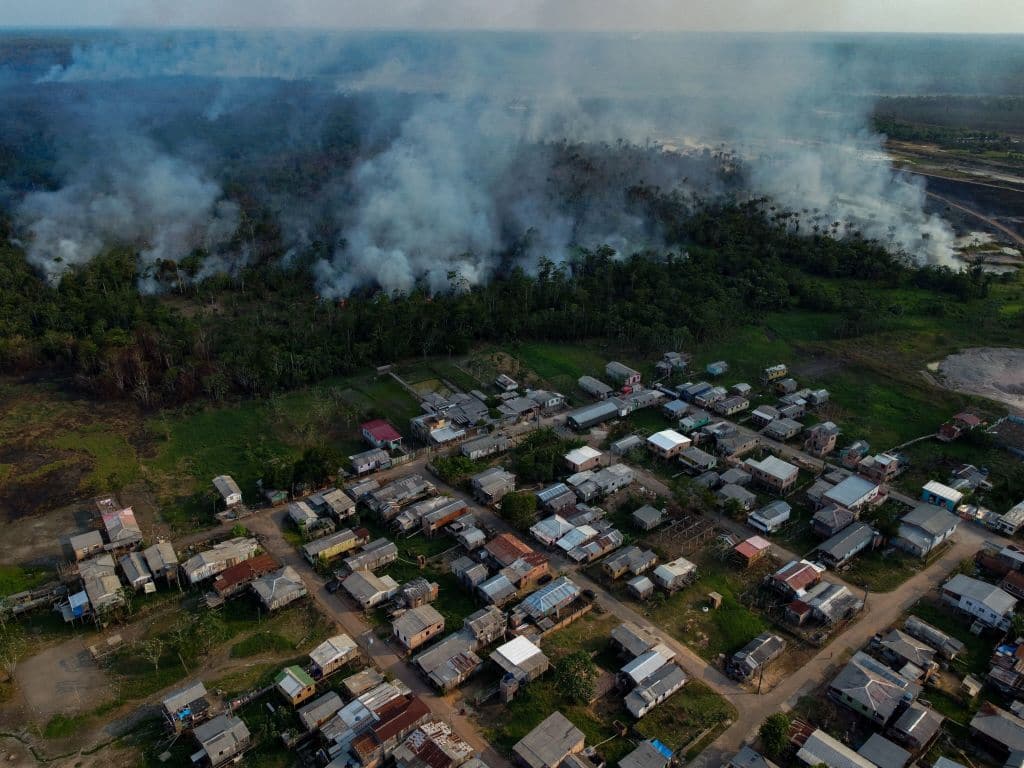
According to a new study, life on our planet is “under siege” from humans and its “vital signs” have been pushed to the limit.
As wildfires rage and record temperatures cause everything from coral bleaching to widespread drought and water shortages, the international team of scientists who declared a climate emergency back in 2019 have said that 20 out of 35 of the planet’s vital signs are being pushed to the edge, reported The Independent.

“As scientists, we are increasingly being asked to tell the public the truth about the crises we face in simple and direct terms. The truth is that we are shocked by the ferocity of the extreme weather events in 2023. We are afraid of the uncharted territory that we have now entered. Conditions are going to get very distressing and potentially unmanageable for large regions of the world, with the 2.6°C warming expected over the course of the century, even if the self-proposed national emissions reduction commitments of the Paris Agreement are met,” the authors of the study wrote.
The scientists pointed out that this year has seen records for air and sea surface temperatures, as well as Antarctic sea ice extent, broken by wide margins.
The Canadian wildfires released a gigaton of carbon dioxide into the atmosphere, nearly twice the country’s total greenhouse gas emissions for 2021, The Independent reported.
“Without actions that address the root problem of humanity taking more from Earth than it can safely give, we’re on our way to the potential collapse of natural and socioeconomic systems and a world with unbearable heat and shortages of food and freshwater,” said Dr. Christopher Wolf, lead author of the report who is formerly of Oregon State University and now a researcher with Terrestrial Ecosystems, as reported by The Guardian.

In the study, the researchers encouraged transitioning to a global economy that reduces the excessive emissions and overconsumption of the wealthy and prioritizes human well-being.
“To address the overexploitation of our planet, we challenge the prevailing notion of endless growth and overconsumption by rich countries and individuals as unsustainable and unjust,” the authors wrote in the study. “Instead, we advocate for reducing resource overconsumption… in a more circular economy; and prioritizing human flourishing and sustainability. We emphasize climate justice and fair distribution of the costs and benefits of climate action, particularly for vulnerable communities. We call for a transformation of the global economy to prioritize human well-being and to provide for a more equitable distribution of resources.”
The study, “The 2023 state of the climate report: Entering uncharted territory,” was published in the journal Nature Climate Change.
The planet’s “vital signs” being pushed to the limit include loss of glaciers and sea ice, extreme flooding, rising ocean and air temperatures, biodiversity loss, fossil fuel use and greenhouse gases accumulating in the atmosphere.
The researchers said that, as climate change progresses, the worldwide breakdown of society was “feasible and dangerously underexplored.”
“Life on planet Earth is under siege. We are now in an uncharted territory. For several decades, scientists have consistently warned of a future marked by extreme climatic conditions because of escalating global temperatures caused by ongoing human activities that release harmful greenhouse gases into the atmosphere. Unfortunately, time is up,” the study’s authors wrote. “We are entering an unfamiliar domain regarding our climate crisis, a situation no one has ever witnessed firsthand in the history of humanity.”
The authors noted that fossil fuel subsidies, rather than lessening after the COVID-19 pandemic, have increased by 107 percent, from $531 billion in 2021 to $1,097 billion last year due to the rising cost of energy.
This year has seen 38 days of the global average temperature in excess of 1.5 degrees Celsius above pre-industrial levels.
“The frequency and severity of those disasters might be outpacing rising temperatures. By the end of the 21st century, as many as three to six billion people may find themselves outside the Earth’s liveable regions, meaning they will be encountering severe heat, limited food availability and elevated mortality rates,” Wolf said, as The Independent reported.
The researchers are calling for a transition to plant-based diets, the phasing out of subsidies for fossil fuels, the adoption of fossil fuel non-proliferation treaties, the elimination of coal and increased protection of forests.
“A shift toward plant-based diets, particularly in wealthy countries, could improve global food security and help mitigate climate change,” the study said.
The authors emphasized that less wealthy nations that have produced far fewer emissions will be most affected by climate impacts, including climate-related disasters and malnourishment.
“These record extremes are alarming in themselves, and they are also in danger of triggering tipping points that could do irreversible damage and further accelerate climate change,” said co-author of the study professor Tim Lenton, who is climate change and Earth system science chair at the University of Exeter, as reported by The Guardian. “Our best hope to prevent a cascade of climate tipping points is to identify and trigger positive tipping points in our societies and economies, to ensure a rapid and just transition to a sustainable future.”
The post ‘Uncharted Territory’: Human Activity Pushing 20 of Earth’s 35 Vital Signs to the Limit, Scientists Warn appeared first on EcoWatch.
